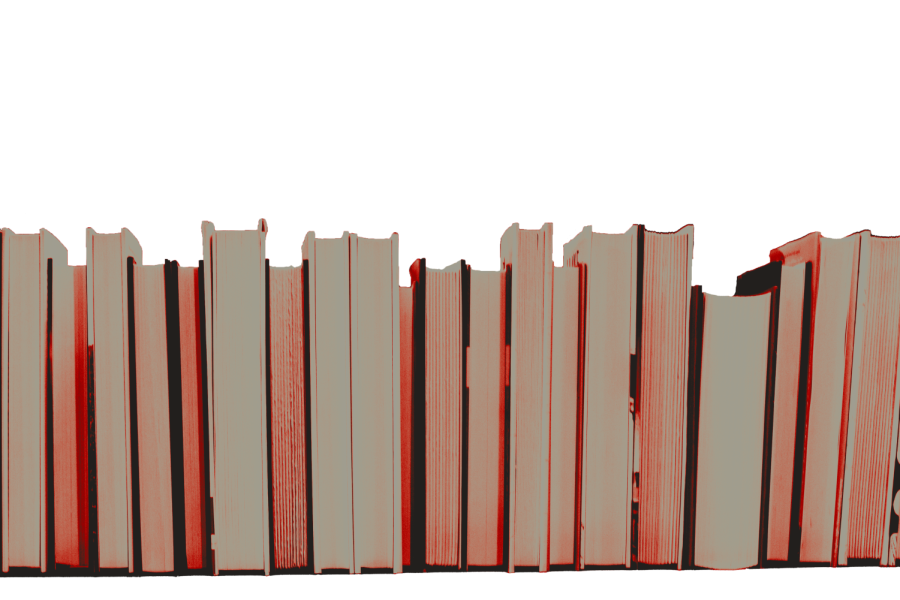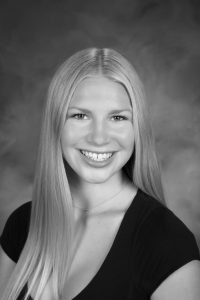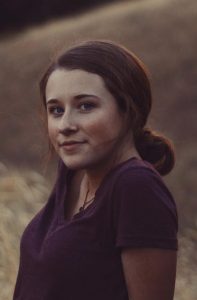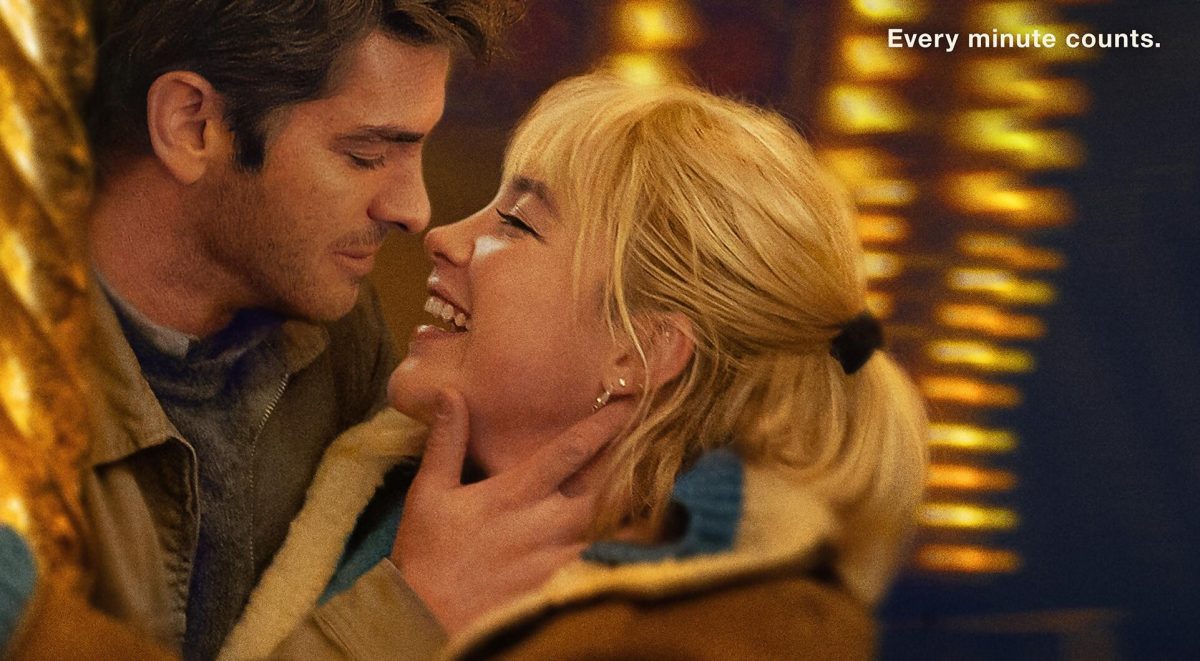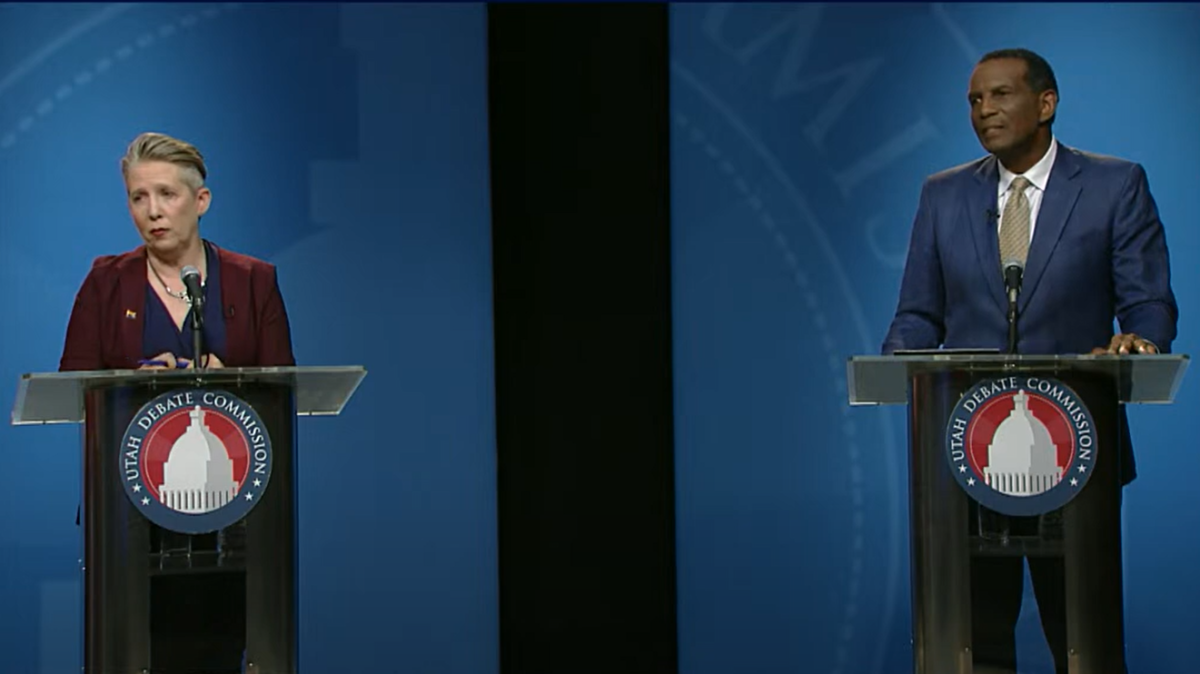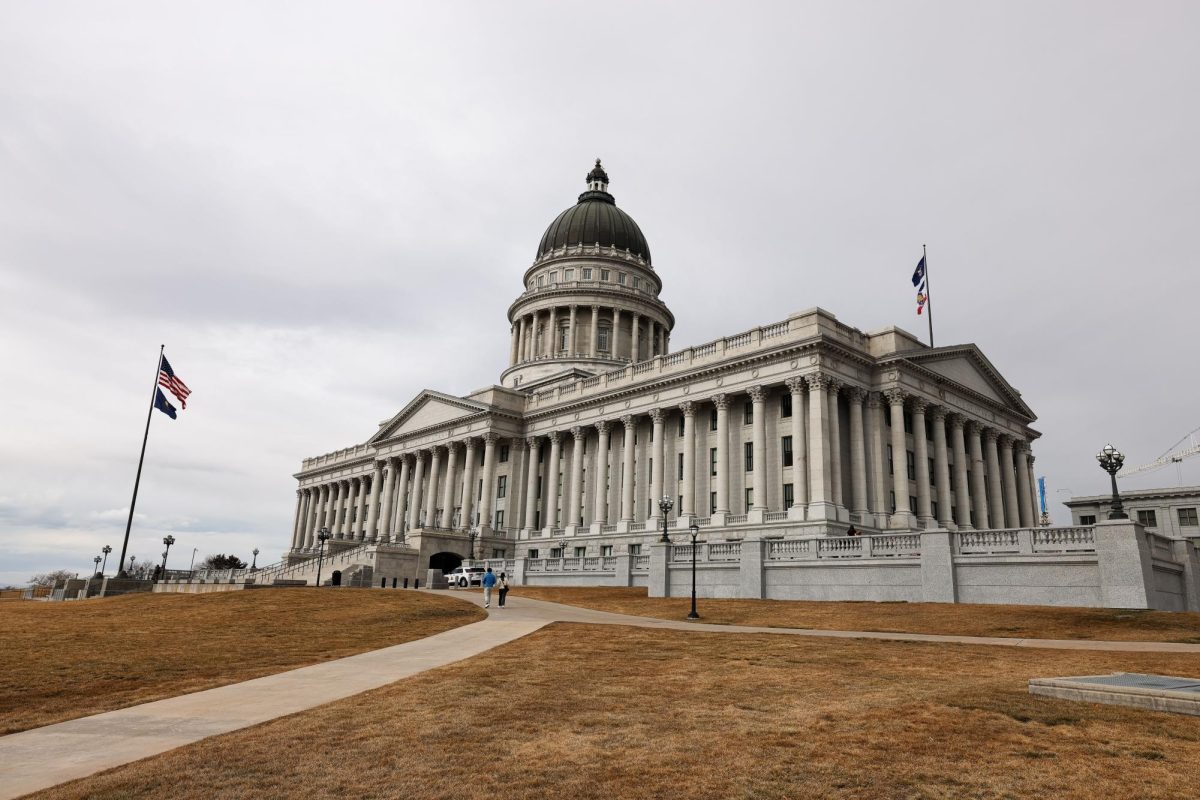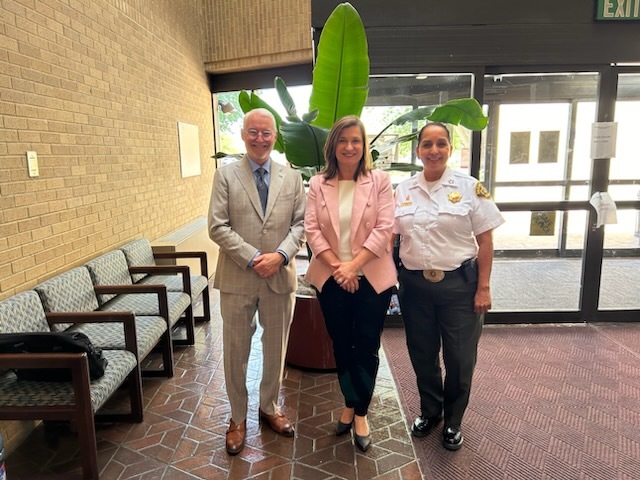News x News: Book Banning in Conservative States: Who is Left Off the Shelves?
(Design by Sydney Stam | The Daily Utah Chronicle)
January 11, 2023
As of Oct. 24, over five months after Utah passed H.B. 374, a bill requiring schools to remove any books with “pornographic” material, the Utah Board of Education has tracked 280 complaints from members of the district — 83% of which have been from parents.
Most books were removed from shelves or restricted, with 122 still available to be checked out, the Salt Lake Tribune reports.
In Texas, the state with more banned books than any other state, parent complaints and local school board elections have changed the course of education, with unhappy parents on both sides.
As of this year, Texas has banned over 700 different books, with most of these banned books addressing issues of race or racism or LGBTQ themes, according to The Hill.
Laney Hawes, the parent of four children who go to public schools in the Keller Independent School District in Keller, Texas, said the school board president of Keller ISD looked to the language and work done in Utah to help create their book-banning guidelines.
‘Reading, writing, arithmetic and blow jobs at Keller ISD’
Hawes has served on two book challenge committees in her district.
In Fall 2021, an English language arts teacher in the district reached out to Hawes to tell her she had received an email from the district about revoking student access to certain online materials. She knew the teacher could not speak out for fear of retaliation, so she called the curriculum director to learn more. Because there were no existing filters to limit what students were able to find on these sites, the director said they wanted to shut down all access until they could find a solution.
Hawes went to the next school board meeting to express her concerns about censorship, as she feared the removal of other books for the sake of appeasing a few parents.
Shortly after, Texas representative Matt Krause placed 850 books on review, books that, according to Hawes, were deemed by the legislature to make people feel guilty for being white or straight.
She said the next school board meeting was, put simply, “chaos.”
“There were parents, one screaming about pornography in schools, there was one parent that held up a sign that said ‘Reading writing, arithmetic and blow jobs at Keller ISD,’” she said. “The police were at our school board meeting, escorting people out who were getting out of control.”
Hawes said she agrees that not all material is appropriate for children to consume but individual family restrictions should not be placed on every child in the school district.
“We’re not talking about Playboy magazine or even Maxim magazine, right?” she said. “We’re not talking about things you would find on PornHub. We’re talking about things like ‘The Kite Runner.’”
The first book challenge committee Hawes served on was in defense of the graphic novel adaptation of “The Diary of a Young Girl” by Anne Frank, but the challenger did not show up to present her case, so the book was voted to be returned to shelves.
One librarian told Hawes they were grateful to see this verdict as graphic novel adaptations make stories more accessible to a wider audience.
Hawes said every challenged book was put back on the shelves, with some restrictions for grade level or requirements for parental permission. As the books were reshelved, opposing parents claimed the committee was rigged.
Local Elections with National Implications
In Spring 2022, Keller was in the midst of an important school board election. With three candidates on the ballot holding different political leanings than the current members and consistently low voter turnout, the dynamic of the school board shifted.
The three previous candidates were replaced with “ultra-conservative, hyper-partisan, PAC-backed candidates,” Hawes said.
“We had political action committees coming in from all over the country, spending hundreds of thousands of dollars on these teeny tiny school district seats, the likes of which no one has ever seen before,” Hawes said. “Normally school board elections are like, small and quiet.”
The first thing they did upon assuming office was rechallenge the 41 books that had just been replaced on shelves. They created a checklist including items such as “Passionate and/or extended kissing,” “Detailed sex scenes or sexual activities” and “Glorification of suicide, self-harm, or mental illness.” If a book contained any of these elements, it would not be put back on shelves.
Hawes said the items on this checklist are not what they appear to be on the surface, because banning books they deem glorify mental illness is a way to limit the representation of transgender individuals, as the board “thinks that trans and gender fluidity you know, gender dysphoria, is a mental illness.”
Many books did not pass this checklist and are now banned for 10 years. The bans limit what is available in libraries, what material teachers include in their curriculum and even the books teachers are allowed to receive as gifts. Hawes said this checklist is meant to replace the book challenge committee, as over time, no “questionable materials … will ever enter library shelves.”
“Books cannot be reduced to a checklist,” Hawes said. “According to these … guidelines, the Bible is going to need to be re-pulled from shelves.”
According to Hawes, parents are searching for teachers who are breaking the rules, and are “blasting them on social media and trying to get them fired.” Parents went through teachers’ Amazon wishlists, “scouring” them for inappropriate books.
Hawes said the danger of banning books that contain violence, drugs, kissing, etc. is the damage it can do to students who live in homes where these elements exist.
“They’re actually erasing survivors … and pretending it doesn’t exist,” she said. “And in the process, the students in our district who are at the greatest risk, who are the most marginalized, they’re the ones that are suffering because their stories are disappearing from library shelves.”
A Cycle of Marginalization
Banning certain books is harmful to students, said Laura Gamboa, an assistant professor of political science at the University of Utah, because it creates misunderstandings of the communities whose stories are being targeted.
“Blocking students, particularly kids, from accessing certain topics, I think is incredibly detrimental,” Gamboa said. “The fact that the conversation nationally has been about banning books that touch topics of diversity and racism, which are key for certain communities, is like a double penalization.”
Gamboa added that these books are key to helping build acceptance and respect for different marginalized communities, and without these stories being told, the struggles of these communities will continue to be dismissed.
“We’re much better able to understand each other if we’re able to share experiences and, one way to share experiences is to read about [them],” Gamboa said. “[Book banning] cuts the ties that bind our community.”
According to Gamboa, without a diverse array of perspectives and stories, it’s likely many students will fail to feel represented throughout their education.
“Banning a book does not mean that these communities do not exist,” Gamboa said. “It only marginalizes people who are already marginalized. It marginalizes a kid who feels strange and doesn’t fit and somehow cannot find his community.”
One study in the Spartan Shield found that this lack of representation can affect the self-esteem of young children, making them feel invisible and impacting them later in life.
Following a Political Agenda
According to Gamboa, these recent book bans are part of a larger strategy conservative politicians are using to garner votes from specific groups.
“Communities, estates or cities that are more conservative are more likely to have politicians that are trying to get the votes of a very particular group of people, mainly more religious people, older people, whiter people, [a] less diverse crowd in general,” Gamboa said. “These groups have become, over time, more radicalized. To get their votes, you have to come out with these crazy proposals like banning books.”
These politicians do this because of how loyal this subset of voters is, said Gamboa. The desire to retain these voters outweighs their want for inclusivity.
However, Republican politicians do this in a way that portrays these marginalized groups as threatening, which Gamboa said is taking information out of context.
“You’re not hearing, ‘Oh, they’re banning books about the story of a kid that is trans and is trying to struggle to go to school,’” Gamboa said. “What you’re hearing is, ‘Teachers want to brainwash our kids using these books.’”
What About Utah?
According to Gamboa, there’s a chance Utah could fall into this book-banning trend due to the nature of the state’s legislature and the number of rural groups the state has.
“Legislatures are trying to get the vote of very rural communities that are very religious, that are very secluded, that really see diversity and social justice broadly understood as threatening to them individually, as something that is rejecting their lifestyle,” Gamboa said.
The Utah legislature does this because of districting in Utah, which Gamboa says gives more power to these rural communities that are more likely to be conservative.
“The way Utah is districted, we have a disproportionate majority of Republicans that if you had a little bit more fair districting, we would still have a majority of Republicans, but it wouldn’t be this big,” Gamboa said. “It would be a little bit more of a balanced legislature.”
Despite there being a chance Utah could follow this trend, Gamboa said she has never felt that the U has restricted her discourse or book assignments.
Gamboa feels the new trend of banning books in conservative states is inherently undemocratic and contradicts what this country was founded on.
“Freedom of speech and freedom of information are basic and are a pillar of democracy,” Gamboa said. “It’s also a pillar of this country.”


